The UK State of the Sector Survey was conducted between February and April 2023, to help understand more about the creative health sector in the UK. It was conducted as a collaboration between CHWA; the Wales Arts, Health & Wellbeing Network; Arts Health & Wellbeing Scotland; and Arts Care (Northern Ireland).
The Review highlights the potential for creative health to help tackle pressing issues in health and social care and more widely, including health inequalities and the additional challenges we face as we recover from Covid-19. The Review has gathered evidence that shows the benefits of creative health in relation to major current challenges, and examples of where this is already working in practice.
Gloucestershire Creative Health Consortium’s pandemic paper ‘Providing Creative Health in Gloucestershire during Lockdown’ is available to download here.
At Barnwood’s Annual Public Meetings in November 2021, over 50 participants came prepared to discuss the following in small groups:
What Small changes would they like to see happen in Gloucestershire, maybe in a specific area, or requiring a small amount of money?
Read a new briefing produced by Julie’s Bicycle, which draws on new data, insights and case studies of good practice to help you navigate environmental impacts and opportunities in the emerging digital landscape - covering: Environmental considerations and digital technology’s carbon footprint / Data and projections for energy use in the digital industry / Good practice case studies from artists and organisations / Recommendations for planning and measuring impact.
From research and development with 60+ organisations, Deepr defined Five Conditions, Principles and Methods that help to create human connection in digital services. When we design solutions that foster these between people, services work better, more gets done and people feel good. Deepr have launched a whole suite of free tools for anyone to use.
This report by Mark Robinson of Thinking Practice was commissioned by the Creative People and Places network to explore and contextualise leadership approaches across the Creative People and Places programme and to consider the impact and learning from this for the wider sector.
While talent and creativity can be found everywhere, access to the money, markets and networks needed to succeed cannot. The result is lost opportunities for individuals and communities as well as a cost to the national economy.
On 27th September 2019 we met to explore Arts and Health and Arts on Prescription* with a focus on Gloucestershire’s delivery. We shared experiences from a number of different arts and health providers from the perspectives of practice and evidence.
We wanted to bring artists and organisations together to share experiences with a focus on high quality practice and evidence.
Public Health England have recently published a report called Health matters: health and work
The summary states that being in good work is better for your health than being out of work. You can read the full report here.
We wanted to draw your attention to one of the case studies in the report which focuses on GEM - a Gloucestershire partnership of community organisations who aim to engage and support individuals who are facing multiple barriers to employment.
The Rural Services Partnership (RSP) is a national champion for rural services in England. The RSP works for the benefit of all rural sectors through a membership organisation which lobbies and advocates on behalf of rural service providers. The RSP lobbies for a fair deal for rural communities to maintain and enhance their social and economic wellbeing and viability
This report covers activity undertaken by nine leading UK arts centres during 2016/17, and is intended to provide a snapshot of the artistic, social and economic contribution and impact the arts centre sector is making.
How we help each other matters. Some help - what we call ‘good help’ - supports people to feel hopeful, identify their own purpose and confidently take action. Other help - which we call ‘bad help’ - does the opposite, undermining people's confidence, sense of purpose and independence.
In this publication we aim to make a practical contribution. We have drawn on a well-established evidence base and worked with practitioners to understand how ‘good help’ is applied in practice. We outline the key drivers of action and list seven key characteristics of ‘good help’.
Developing the next generation of charity leaders.
Charities Aid Foundation (CAF) launched the Growing Giving campaign in order to secure the future of the charity sector and from the very start we realised it was vital to get young people to engage with charities – through volunteering, raising and donating funds, and in leadership positions such as serving as trustees of a charity.
















